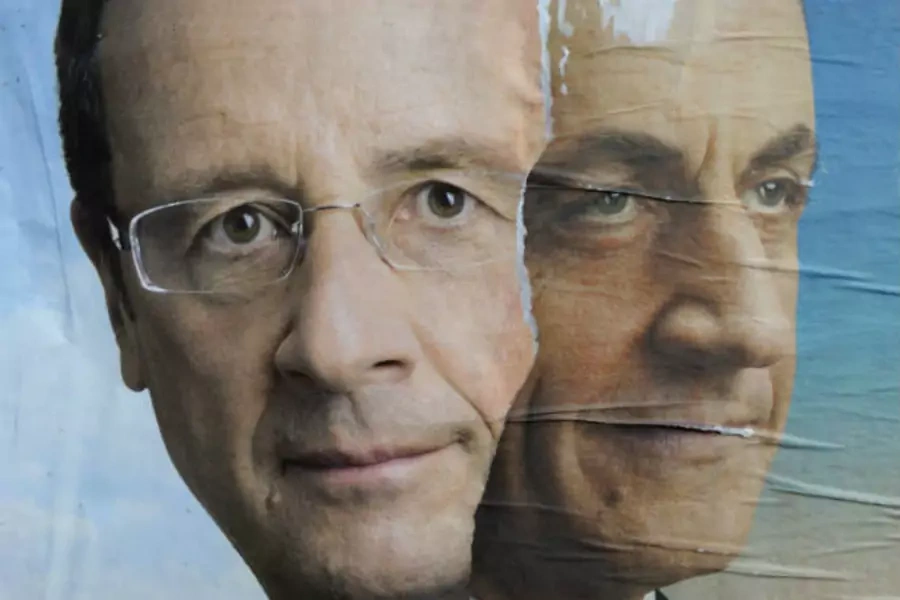The World Next Week: France Votes, Malawi Mourns, and the Chernobyl Anniversary Follow Earth Day

More on:
The World Next Week podcast is up. Bob McMahon and I discussed the presidential elections in France; Malawian president Bingu wa Mutharika’s funeral; the twenty-sixth anniversary of the Chernobyl disaster; and Earth Day.
[audio: http://www.cfr.org/content/publications/media/editorial/2012/20120419_T…]
The highlights:
- The French go to the polls for what is likely to be the first round of presidential elections. If the polls are to be believed, incumbent president Nicolas Sarkozy risks becoming the first French president in more than three decades not to be elected for a second term. Sarkozy’s brusque style has rubbed many in France the wrong way. His main opponent, Francois Hollande of the center-left Socialist Party is promising to lower the retirement age to 60—Sarkozy raised it—and put the eurozone on a firmer footing. One thing to watch is how the two second-tier candidates—Marine Le Pen of the far-right National Front and Jean-Luc Mélanchon of the far-left Left Front Coalition—fare. For all the ideological distance between these two candidates, they are both hostile to the European Union (EU). Should they pull more votes than expected—both are polling around 15 percent—that would signal significant trouble for the EU going forward.
- The funeral for Bingu wa Mutharika marks the end of an era in Malawi. Mutharika won elections in 2004 and then again in 2009. For a while Malawi prospered under his leadership; the economy grew by 7 percent annually from 2005 to 2010. But in recent years the economy has stumbled as prices for the country’s main export, burley tobacco, fell and government policies exacerbated rather than mitigated the problem. Meanwhile, Mutharika became more authoritarian and eccentric. Among other things, he insisted that his house was haunted and he ordered exorcists to fix the problem. Malawi’s new president, Joyce Banda, was once Mutharika’s protégé, but the two had a falling out. She launched her presidency by firing corrupt officials, a move that helped spur some optimism in the land-locked country.
- April 26 marks the twenty-sixth anniversary of the Chernobyl nuclear disaster, which released at least one hundred times more radiation than the atomic bombs dropped on Japan during WWII. On the day of the anniversary, Ukraine is set to begin construction of a new sarcophagus to entomb the more than 200 tons of melted nuclear fuel and debris. The site remains so radioactive that scientists cannot approach it.
- Earth Day is intended to focus the public’s attention on protecting the environment. But as we prepare to celebrate the forty-third Earth Day, Americans are more focused on finding new energy sources than on protecting Mother Earth. That’s what happens when the price of gas goes above $4 per gallon.
- Bob’s Figure of the Week is 3.5 percent. My Figure of the Week is Farouq Sultan. As always, you’ll have to listen to the podcast to find out why.
For more on the topics we discussed in the podcast check out:
France’s Presidential Election. The BBC profiles all the candidates. The Economist has a videographic guide to the election. Maïa de la Baume and Steven Erlanger of the New York Times write that “sound and fury from the Left” is one of the election’s biggest stories. Nicolas Sarkozy’s 2007 campaign was partially funded by Muammar al-Qaddafi. Time has an extensive interview with Francois Hollande. Sarkozy is suffering campaign defections and falling poll numbers. Immigration is the issue that gets Marine Le Pen’s supporters going .
Bingu wa Mutharika’s Funeral. The Guardian has Mutharika’s obituary. Reuters reports that Malawi paid the price for its “Economist in Chief’s” ego. Four heads of state will attend the funeral. Thousands in Zimbabwe mourn Mutharika’s death. AllAfrica.com thinks that Malawi is falling apart “politically and economically,” looks at what Joyce Banda’s succession means for Malawi, and reviews the problems Mutharika left behind. According to the World Bank, GDP per capita rose during Mutharika’s time in office.
The Chernobyl Disaster and Nuclear Power. The United States Regulatory Commission has a backgrounder on Chernobyl and a fact sheet on the risks of nuclear reactors. The Huffington Post has photos of the destruction the disaster caused. The International Atomic Energy Agency has an interactive guide on the incident. The World Health Organization analyzes the health effects of the Chernobyl accident. After the Fukushima disaster, Japan is divided over nuclear power. The Economist asks if nuclear power is the “dream that failed.” An inter-disciplinary faculty group at MIT asks if nuclear power is the future.
Earth Day. The Environmental Protection Agency has an official website for Earth Day. The Earth Day Network has compiled a list of Earth Day events. Robert Nelson thinks that environmentalism has become a new religion. Joel Achenbach argues that we should treat Earth like a spaceship.
More on:
 Online Store
Online Store